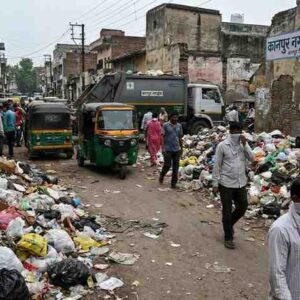New Delhi, 2025— While governance and policy-making are critical to India’s democratic framework, it is the collective civic responsibility of its citizens that truly defines the strength and resilience of the nation. Beyond the duties of the state, individual actions — or their absence — play a crucial role in shaping the progress and global image of India.
The Role of Individual Responsibility in Nation-Building
Civic responsibility encompasses the everyday actions of citizens that contribute to the welfare of society and the betterment of public spaces. From maintaining cleanliness to respecting laws and public infrastructure, these small yet significant contributions ensure the smooth functioning of democracy.
However, instances like the spitting of paan in newly refurbished railway compartments highlight the challenges India faces in fostering civic responsibility. Despite state-of-the-art upgrades under the‘Mission Raftaar’and the‘Indian Railways Modernization Plan,’reports have surfaced of passengers defacing new interiors. This behavior undermines both the efforts of the government and the public investment made for modernization.
Why Civic Responsibility Matters
- Preserving Public Assets Public infrastructure such as railways, roads, and parks are built through taxpayer money. When citizens fail to respect these assets, the nation incurs additional costs for maintenance and repair, diverting resources from other developmental initiatives.
- Maintaining Global Reputation India’s aspirations to be a global leader require its citizens to act responsibly, particularly in public spaces. Actions that disrespect public assets or flout basic civic norms tarnish the country’s image on the world stage.
- Strengthening Community Values Civic responsibility fosters a sense of belonging and shared accountability. When individuals take ownership of their actions, communities become stronger and more united, reflecting the true essence of democracy.
Steps Toward Fostering Civic Responsibility
- Education and Awareness Incorporating civic education in school curriculums is essential to instill responsibility from a young age. Awareness campaigns like ‘Swachh Bharat Abhiyan’ have already proven effective in reducing littering and promoting cleanliness, but continued efforts are necessary to address broader civic issues.
- Public Accountability Implementing fines for actions like spitting in public places or vandalizing infrastructure, coupled with robust enforcement, can deter such behavior. For example, the introduction of fines for defacing public transport in certain metro cities has shown promising results.
- Community Participation Encouraging community involvement in maintaining public spaces, such as through neighborhood watch groups or local clean-up drives, empowers citizens to take ownership of their surroundings.
- Government-Citizen Collaboration Initiatives like the ‘MyGov’ platform allow citizens to actively participate in governance by sharing ideas and reporting civic issues, fostering a sense of direct contribution to the nation’s progress.
Civic Responsibility in Indian History
India’s freedom movement offers numerous examples of collective civic responsibility. From boycotting foreign goods during the Swadeshi movement to participating in mass protests, ordinary citizens played extraordinary roles in shaping the nation’s destiny. These acts of responsibility, rooted in a sense of duty toward the country, remain an inspiring benchmark for modern India.
Conclusion
Civic responsibility is not just a personal virtue but a democratic obligation that directly impacts the nation’s development. While the state plays its part in creating infrastructure and policies, individual actions determine their effectiveness and longevity. By respecting public assets, participating in governance, and fostering a culture of accountability, Indians can ensure that their democracy remains robust and their nation continues to prosper. After all, a democracy thrives not just on the strength of its government but on the collective will and responsibility of its people.










